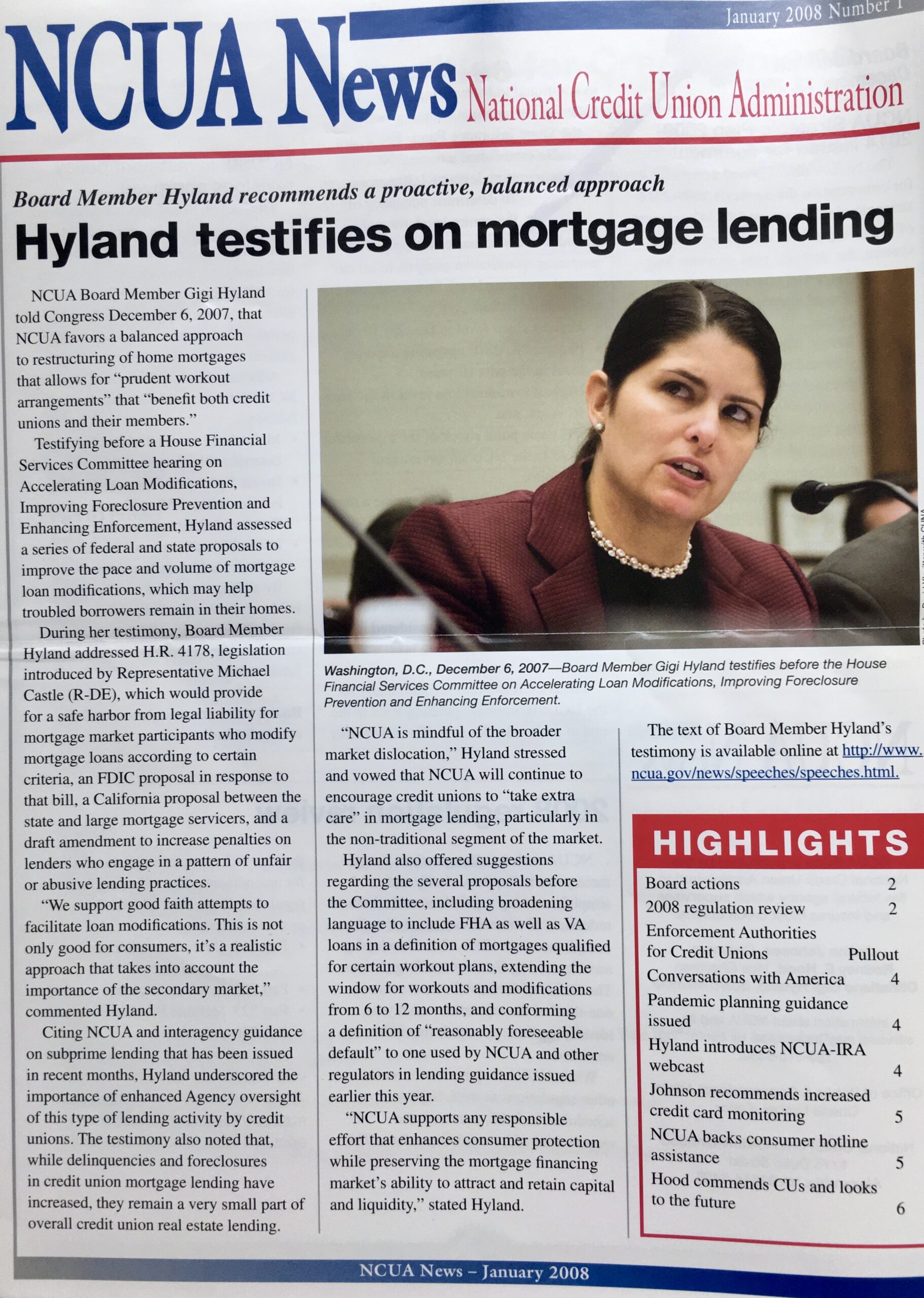It is a cliché, but true. The well-being of any organization depends on the quality of board leadership.
Boards select the executive team and, depending on the organization’s bylaws, exercise ongoing monitoring of performance and strategic guidance. In the case of a public board, politically appointed, the board becomes the primary face of the organization to its various constituencies.
Board leadership is a critical skill. Some boards become so dependent on either the CEO (staff) or the chair that their performance is perfunctory, just follow the leader. At other times in the same organization, boards are dynamic, bringing expertise, insight and critical mission debate.
Following is the front page of the January 2008 NCUA News. The lead article is about minority board member Gigi Hyland’s testimony to Congress on the need for flexible and responsive mortgage loan modification options.
The topic was certainly timely in light of the subsequent financial crisis. But what is even more interesting, is that she represented NCUA’s position. The Chairman and vice chair were republican appointees JoAnn Johnson and Rodney Hood. Both also had short articles in this edition about their activities. But the lead story is Hyland’s testimony for NCUA..
The Changing Role of NCUA Board Members
Since the 2008-2009 financial crisis, the role of the NCUA board has changed. Sometimes new members have very limited, or no, first-hand experience of credit unions or regulation.
Members have interpreted their responsibilities in different ways. Some have viewed it as merely “policy making” with limited or no staff oversight. Some view the job as a part time time responsibility. It does not even require in-office attendance except on public board meetings which can now be done virtually.
The result of these various understandings, is the Chair can influence board member’s substance and roles in very narrow or expansive ways.
The example above shows a board fully engaged in different responsibilities and communicating with its constituencies in a full and open manner. This NCUA publication no longer exists. Board members now just post individual statements, and sometimes speeches, on NCUA’s web site.
With Chairman Harper on an extended medical leave, the NCUA board’s role becomes more problematic. The message is still the same however. The quality of any organization depends on the board’s leadership.
This comparison from the communication of 2008 suggests the current Board has a lot of ground to make up. Perhaps a first step would be to restore the NCUA News in which each member has an opportunity to discuss what they are focused on.

